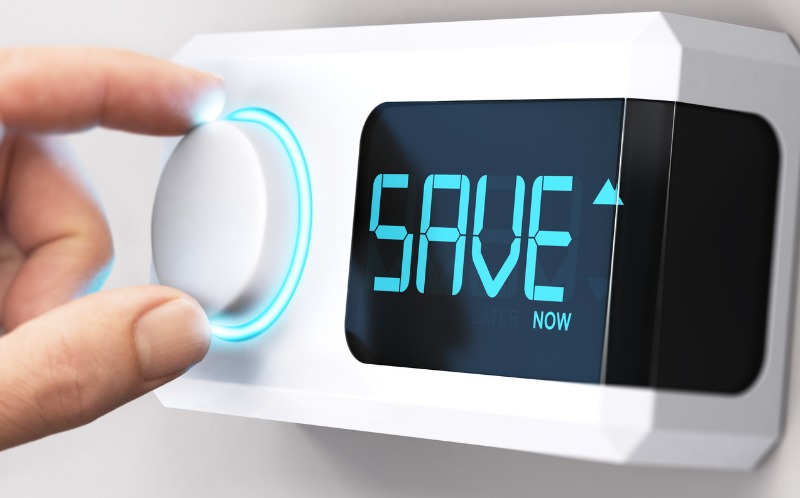Unfortunately, many homes, especially the older ones, were not built with energy efficiency in mind. Today, however, more and more people are becoming aware of just how much damage we are causing to the environment by being careless with electricity and heating, and just how much could be saved by living in an energy efficient house. This interesting infographic shows just how much we energy we can save by optimizing our household for energy efficiency.
A truly energy efficient home will not only reduce unnecessary energy consumption, but will also reduce greenhouse gas emissions and provide significant savings. The good news is, if you are living in a home that is not up to date with the latest energy saving features, there are a few things you can do yourself without having to spend a great deal of money:
Improving Insulation
One of the most important things when it comes to the efficiency of a home is the insulation. If you don’t have good insulation, then chances are you will be letting out a lot of the warm air from your house without even knowing. Not only will this be more expensive for you in terms of the heating costs, but you will also waste a lot of energy. It is possible to weather strip and replace the insulation in your house yourself, but the best thing to do is have an expert come in and do it for you.
Windows
Windows are another area where heat is lost or gained, especially if you have older windows that were not built to current energy efficiency standards. Some of the best windows that you can have are either double paneled or vinyl frames. If you don’t want to pay out to completely replace the windows, you could consider tinting or purchasing insulating blinds or drapes.
Look At Your Bulbs
Something as simple as changing bulbs can help to increase the overall energy efficiency. Older bulbs may mean that you are using much more energy than you need to. Many people are now switching to either fluorescent or LED bulbs which can last much longer than a regular incandescent bulb.
Fix Leaks
Air leaks in your house can contribute to the loss of warm air or draughts. If possible, you should try to find any locations of these leaks (using an incense stick or examining the spots where two building materials meet are a good way to find them) and patch them out before they let out any more of the warm air.
Switch Off Gadgets
If you are not using a gadget but it is still on or plugged in, chances are the gadget is using up some precious electricity. If you don’t need to use them immediately, you should try switching them off or unplugging them, as over time the costs can really start to add up. These small savings will eventually turn into big savings.
Have An Audit
There are people out there whose sole job is to conduct energy efficiency audits in houses. They will check where your house stands in terms of efficiency and pinpoint spots that could use some improving. They will have tools and skills that will determine just how much work you have to do.
These are just a few of the ways in which you can increase the energy efficiency of your home. There are many other techniques that could be used such as getting solar panels installed. Why not look into improving the efficiency of your home today and see just how much you end up saving?
This post is intended for informational purposes only and should not be taken as professional advice. The point of view and opinions expressed in this post are those of the author and do not necessarily reflect the position of Realty Executives International. This article was written by Megan Arevalo. Megan Arevalo, community director and writer for Websitebuilder.org. She lives in Portland, Oregon with her husband and two young children. When she isn’t called to the duties of motherhood, she creates and manages content for Websitebuilder.org. She is passionate about social media, website building, writing, photography and, of course, her children and husband.

